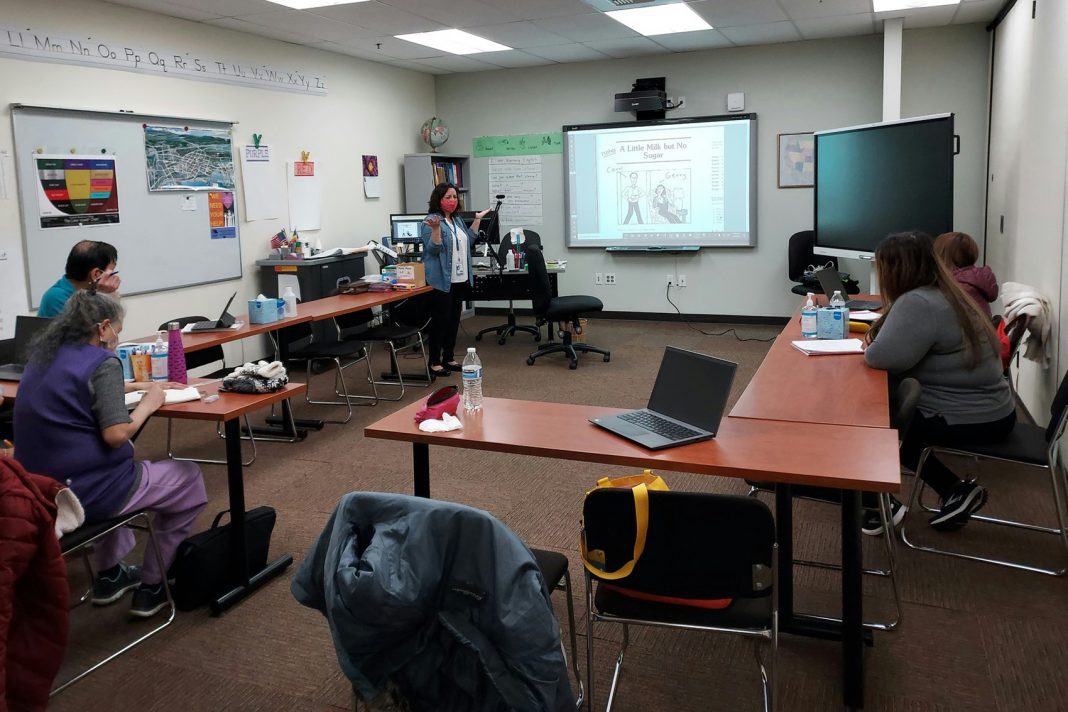Many people who visit the Bellingham Goodwill may never notice it, but towards a far wall at the front of the store, hanging above a pair of wooden doors, a large sign reads: “Job Training & Education Center.”
Beyond these doors, in two 15-station computer labs and multiple classrooms, people’s lives are changing for the better.
Thanks to support from Comcast and other regional partners, individuals and families in Whatcom County, and across Northwest Washington, are receiving the online access, resources, and skills they need for educational and employment goals.
Evergreen Goodwill offers free courses and workshops — covering everything from employment readiness to English language learning — in virtual, hybrid, and in-person formats across five Goodwill Job Training and Education Centers in Western Washington.
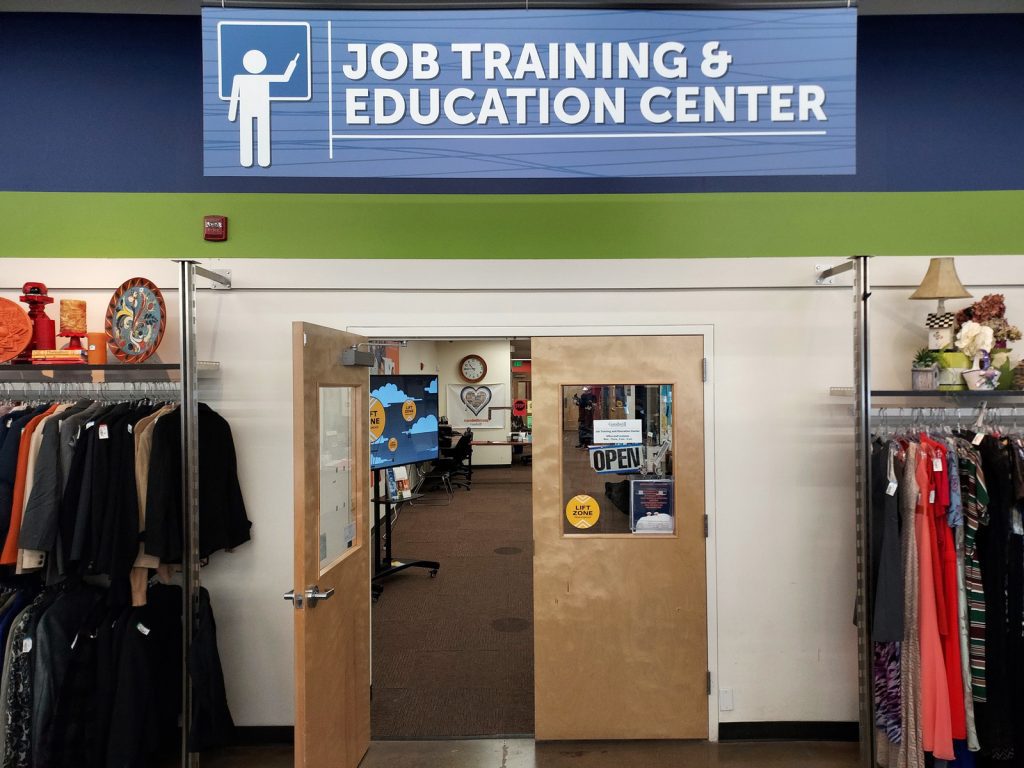
Comcast’s Lift Zones program is benefitting the Goodwill’s Job Training and Education P\programs through enhanced Wi-Fi capabilities, and the company has made other financial and equipment contributions, as well. Lift Zones is part of Comcast’s digital equity initiative, which includes programs like Internet Essentials and Project Up.
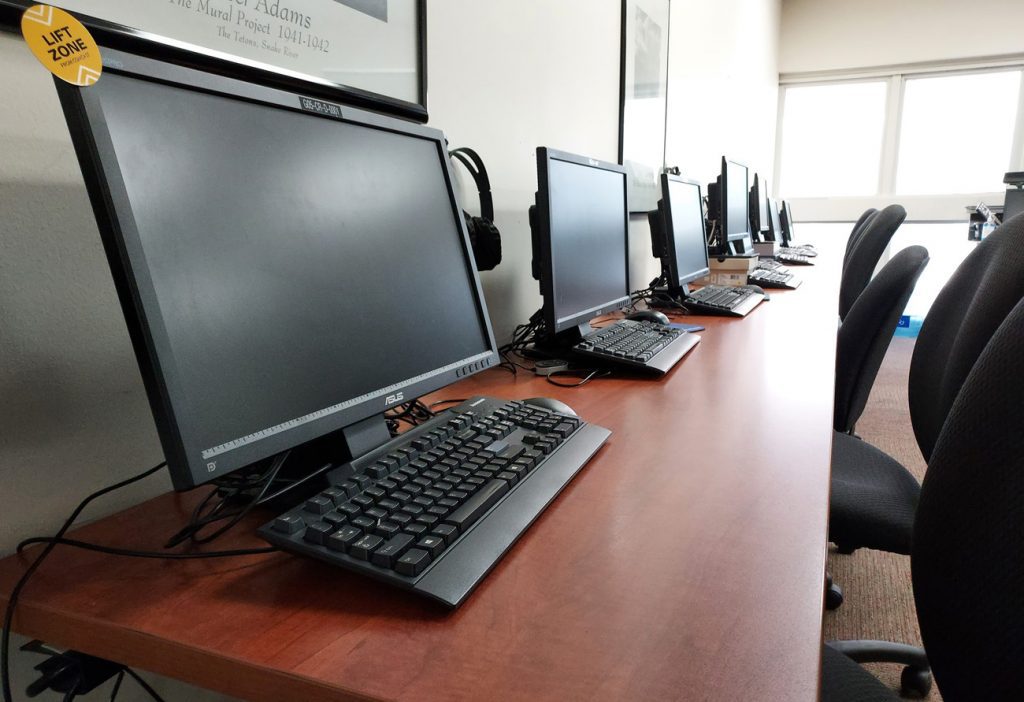
“Our overall mission is to break down barriers to education and employment,” says Ryan Hodges, a communication specialist for Evergreen Goodwill. The success of the program, he adds, proves that Goodwill is much more than just a thrift store.
“Every time you donate something to Goodwill, every time you choose to shop here, you’re also supporting what’s happening here in these classrooms. You’re supporting people’s dreams and educational endeavors.”
Making Progress
The Whatcom County Job Training & Education Center covers a wide range of topics. Their adult basic education classes include English for Speakers of Other Languages (ESOL), high school equivalency completion, citizenship test preparation, computers and digital literacy, customer service essentials, and work readiness skills.
The latter topic includes information on resume and cover letter writing, online job searches and applications, program and typing practices, email, dressing for job interviews, how to apply for jobs with a conviction history, and more.
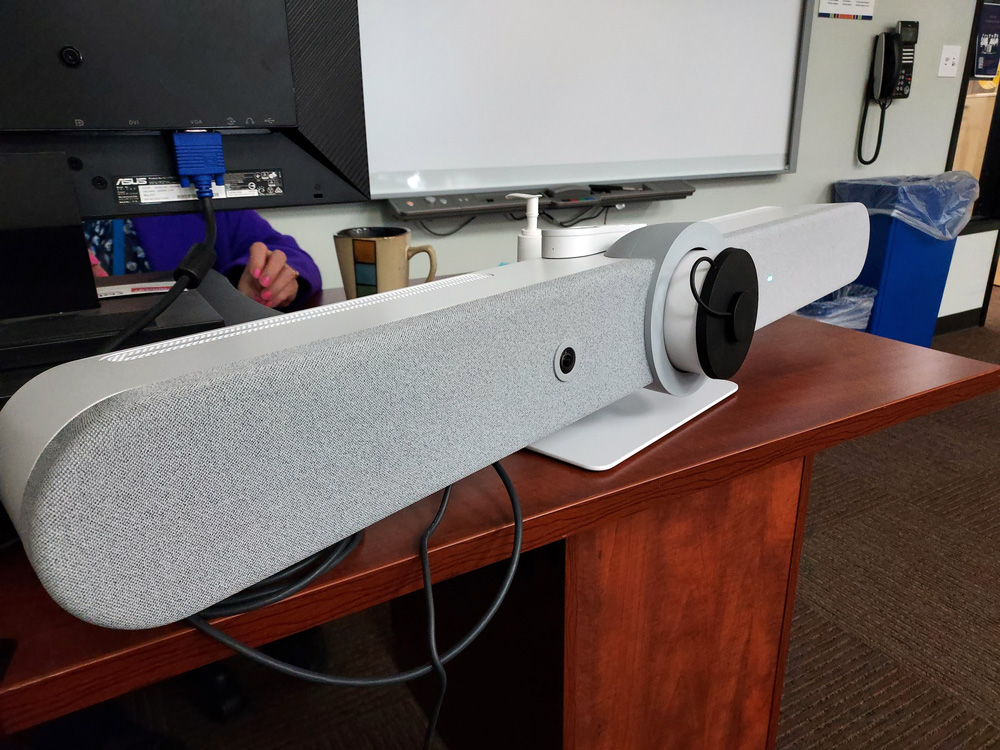
“It’s basically building up people, making them feel like they’re worth something,” says Norma Suarez, Job Training and Education Center manager at Bellingham Goodwill. “Because sometimes people come in here thinking, ‘I just work as a retail person.’ But once you start talking to them, you’re like, ‘Okay, you’re more than just a retail person.’ And once they see their resume, done by a professional, their face kind of lights up.”
Professional instructors, hired by Goodwill, include TEASL (Teaching English As a Second Language)-certified language instructors and other instructors with master’s degrees in their chosen specialty. They are joined by employment specialists and case managers for students, and together these individuals form an incredible team to help students pursue success.
The classes don’t just provide students access to goals and growth, but also basic needs. Case managers can work with students to find help if they’re struggling with utility bills or food access, as doing so improves both their class performance and their job outlook, Suarez adds.
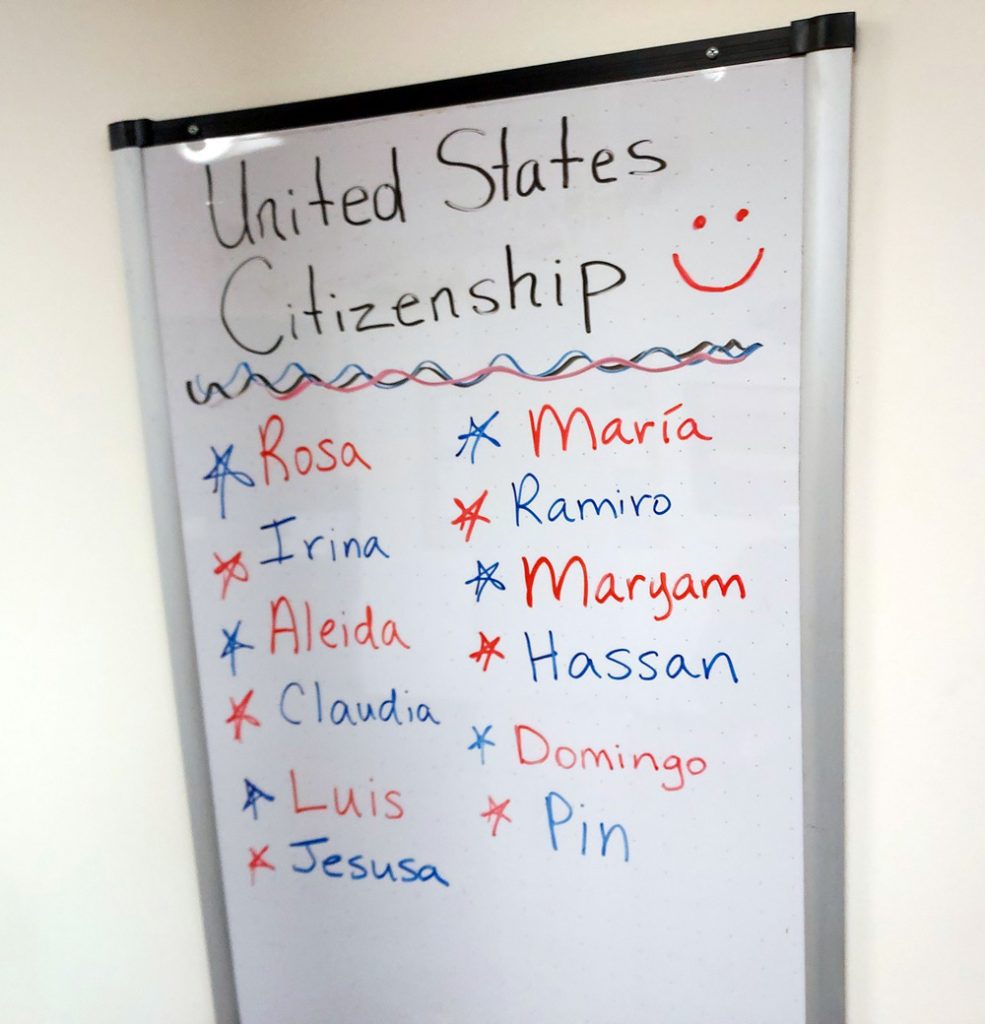
In addition to funding from partners like Comcast, proceeds from Goodwill donations and purchases make these classes possible. In addition to being free, the courses have a lower entry barrier than many similar programs.
“Some programs have certain restrictions because of their funding,” Suarez says. “You have to be a single mother, or you have to be a certain age, or you have to have a disability. We don’t have any of those barriers. If you want to find employment, we’re here for you.”
A Silver Lining
When the COVID-19 pandemic struck in the spring of 2020, Goodwill acted as a critical lifeline for many students.
Places like public libraries, WorkSource locations, and even DSHS offices closed, leaving some who rely on their digital services in a bind. Goodwill remained open so students could use computers and be connected to Wi-Fi. They also loaned out laptops — Bellingham Goodwill has nearly four dozen Chromebooks available for checkout — and Wi-Fi hot spots.
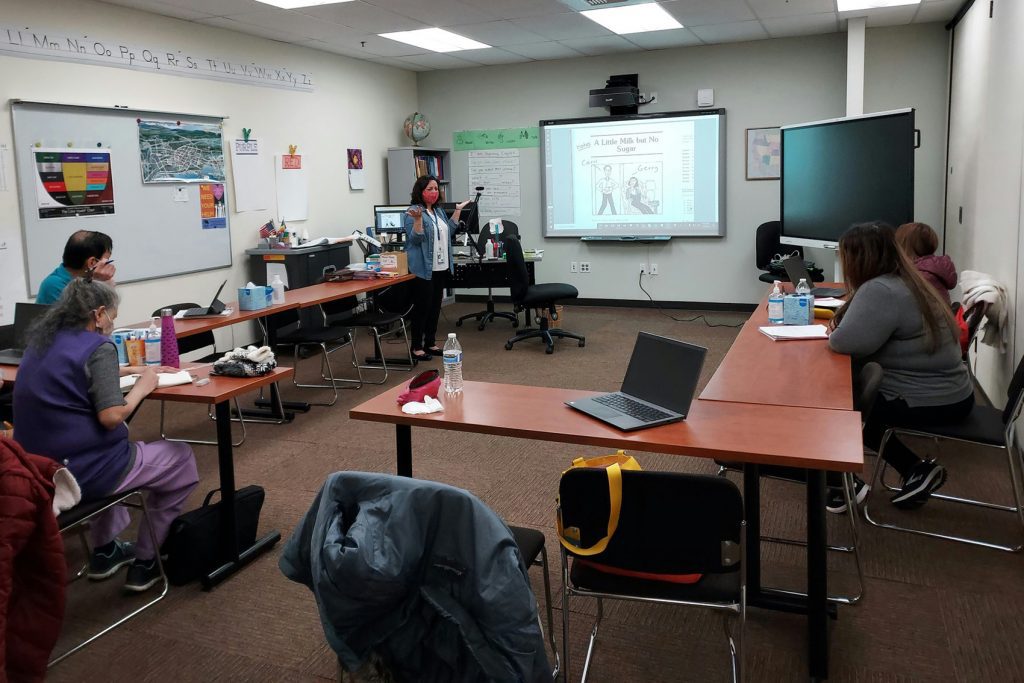
The benefits of doing so were critical to some. Suarez mentions one woman, living between Lynden and Ferndale, who was working on getting her General Education Diploma (GED) when the pandemic hit. By renting out the needed equipment, she never stopped studying. With the college temporarily closed and no timetable on actually taking her GED exam, she had extra time to study, and could communicate virtually with her instructor for help.
“If we had closed — if we didn’t have the technology to loan her — she would have stopped,” Suarez says. “We would have lost her. And now she has her GED, and she’s thinking about going to college. This is someone who didn’t feel like she was college material.”
Even with the pandemic subsiding, hybrid courses are sticking around at Goodwill because of their many benefits. Each computer lab has a large, propeller-shaped device with speakers and a moving camera lens that helps remote students feel more in-sync with their in-person pupils.
“They’ve kind of tapped into that macro trend,” says Andy Colley, Comcast’s external communications director. “Whether it’s work or learning, we’re now in hybrid mode. It’s the new normal. We’re not returning back to always being in-person. So, having that internet connectivity, and having a robust library of virtual classes, is really helpful.”
Remote classwork is also a big deal for those living outside of Bellingham. Although occasional in-person workshops take place in Lynden, Everson, and the East Whatcom County Regional Resource Center near Kendall, learning from home allows students to bypass in-person obstacles like transportation or childcare.
Those involved with the program say seeing people empower themselves is immensely gratifying to witness. For Colley, it’s the most rewarding part of working for Comcast.
“What Evergreen Goodwill and Comcast share is this commitment to getting people the assets, the resources, and the skills to advance in this digital economy,” he says. “The way things are now, the skills that are needed to get a job — online access is mission critical to that. This is where we’re working together.”
Sponsored





























